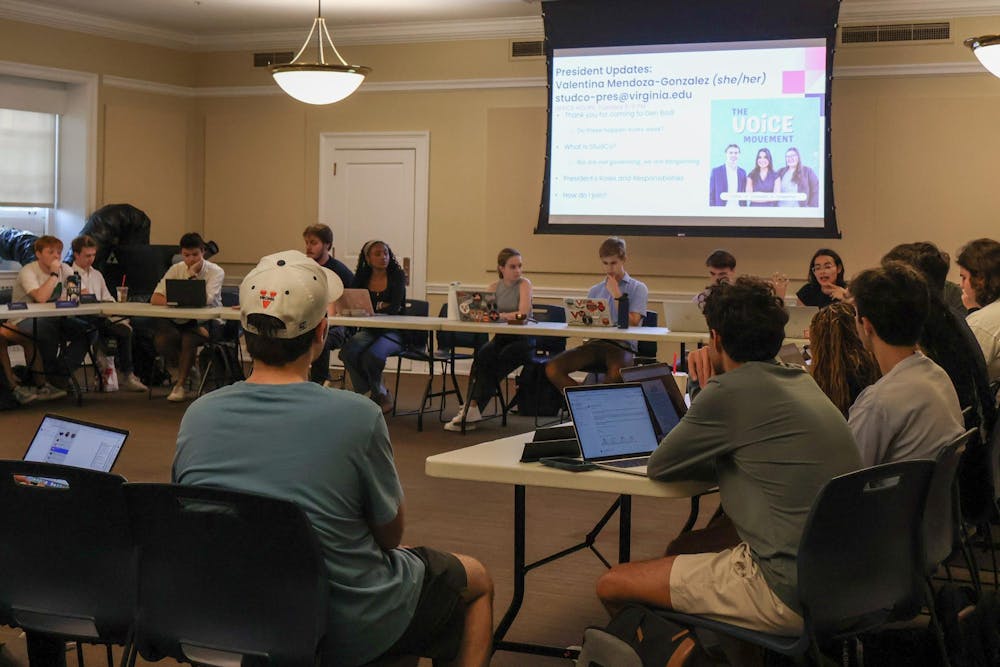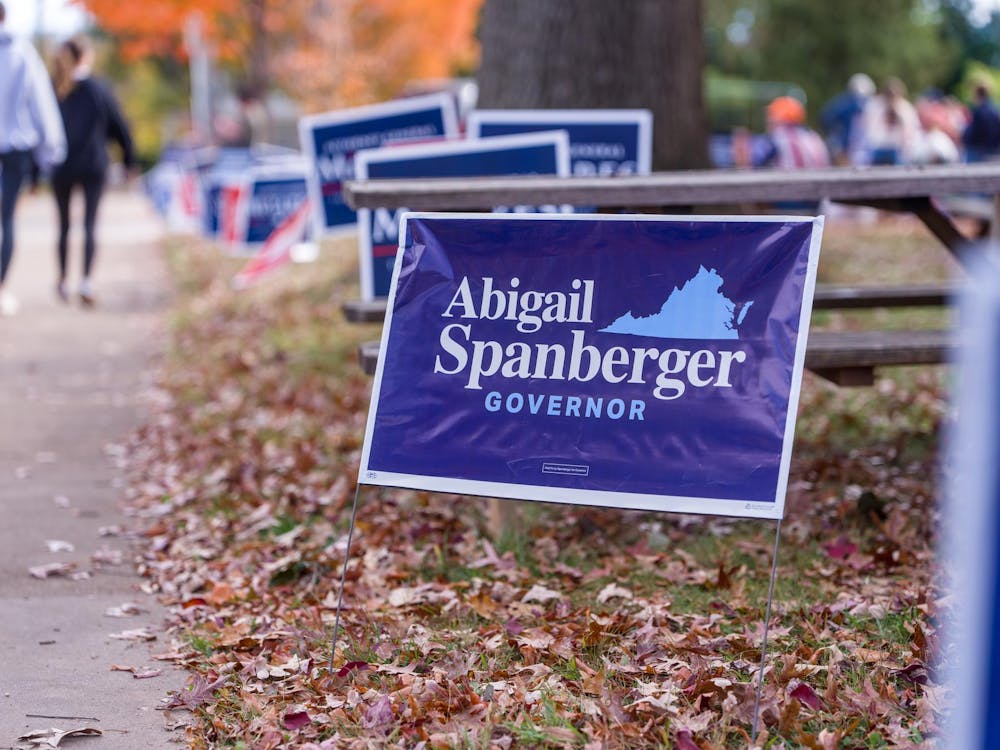Student Council heard from Attorney Teresa Hepler of the University Student Legal Services during the first general body meeting of the semester to discuss current issues related to off-Grounds housing and public intoxication arrests of students. Representatives of Student Council additionally discussed the upcoming Spring Activities Fair and the official launching of the Student Council Capital Campaign.
As the sole attorney representing SLS — a University program which provides low-cost legal assistance to students — Hepler said she sees two major problems students have with contractual housing agreements. The first is regarding early leasing, as many off-Grounds landlords at the University require students to sign leases 12 months in advance for the following academic year. Hepler said many first-year students are signing leases without a complete understanding of the agreement, especially because of landlords who drive up prices by writing ambiguous leases with extra charges.
“A lot of students don't know that leases are actual contracts, so you can’t just [erase] them,” Hepler said. “And it doesn't matter if you get on-Grounds housing, the off-Grounds landlords don't care that you have just now signed an on-Grounds lease. So that can really be a problem.”
Hepler noted that many students are uneducated when dealing with these legally binding contracts and feel pressured to sign without having a chance to tour the apartment. Additionally, some look to get out of their apartment leases upon signing an on-Grounds lease, but end up stuck.
The second issue Hepler pointed out was regarding joint tenancy leases — often groups of students share leases rather than choosing a single-room apartment on their own. She said that she sees many students who experience one roommate causing an issue, such as not paying rent, but all roommates signed onto the lease and become responsible.
First-year College Rep. Talmadge Gunter elaborated on this issue, agreeing with Hepler that off-Grounds housing is often disorganized and lacks communication from the University, but that on-Grounds housing is not necessarily any better.
“Nobody told first-years, if they were doing off-Grounds housing, how to do off-Grounds housing,” Gunter said. “There was no support from the University and there’s no guarantee for second-year housing [on-Grounds].”
Hepler also asked Student Council representatives for ideas to resolve these problems. While no concrete resolutions to these problems were proposed, Jason Almas, fourth-year College Rep. and chair pro tempore, suggested that an email could be sent to the student body in early fall listing out the top mistakes made by students going off–Grounds for the first time, as a way to educate and guide those looking for apartments. Hepler said she felt this was a great idea. She also said she hoped that the shift to all second-years being required to live on-Grounds as part of the 2030 plan will cause landlords to lower prices.
“[If] second years live on Grounds, you're going to have a third of people who are eligible customers [for off-Grounds tenants] gone, and I'm hopeful they'll have to compete more with each other to get tenants,” Hepler said. “That means that the prices will go down, and maybe they'll treat the students better.”
Hepler also discussed the issue of University students being arrested for public intoxication and the legal effects of this on the students themselves. According to Hepler, she was in court 15 times last semester and most of those times were because a student was drunk in public. Police can make an arrest when a person who is seen publicly intoxicated refuses ambulance transportation to the hospital. These people are taken to jail and are charged with a class four misdemeanor, which is the lowest level misdemeanor in Virginia.
Hepler said many students worry about this charge being on their criminal record and said that it can be traumatizing, especially for younger students still adjusting to a social scene and understanding their own tolerance. Hepler said it is important for students who may be approached by police while intoxicated to do as officers say, which might include pouring out a drink, leaving an area if asked, or agreeing to go to the hospital if needed.
“The police here generally don't arrest you unless you're really sick and refuse, or are being combative with them.” Hepler said. “But still, they are picking people up, even when that's not the case, and they take them to jail to sober up.”
Student Council did not come to a resolution on this topic. Multiple representatives said they knew students who were arrested for public intoxication because an option to take an ambulance to the hospital was not presented to them by the police. Hepler said she has spoken with Student Health and Wellness about this issue to hopefully get an email sent to students with explicit medical amnesty details. Medical amnesty laws grant limited legal immunity to people who voluntarily seek medical attention for themselves or others in the case of an alcohol or drug overdose, regardless of their age or the substance used.
Tuesday’s meeting also highlighted many events and projects for the coming months. Ryan Bowers, vice president for organizations and fourth-year Commerce student, discussed the Spring Activities Fair taking place in the Newcomb Hall Ballroom Jan. 27 from 5 - 8 p.m. Approximately 120 CIOs will have booths set up for students to browse.
Another project that the Council discussed was the Student Council Capital Campaign, which was officially launched December 2024. The campaign, which aims to raise funds through an online donation site, was initiated because Student Council is facing funding limitations which inhibit its ability to provide the full extent of its resources to students. The campaign website includes a link to donate to Student Council through the University Alumni Association’s Fund and states the money is directly deposited into the Student Council account.
While this campaign aims to increase Student Council funding sources, Valentina Mendoza Gonzalez, president of Student Council and fourth-year College student, said at Tuesday’s meeting that more can be done to fundraise in the future, though she is not sure what that will look like yet, with the current donation site just being the first step.
“I learned a lot of lessons in this process and what [the project] came out to be is not what I wanted to see at the beginning. I’m not completely satisfied, but I’m happy that we’re all doing work to get toward having some kind of Student Council financial stability,” Mendoza Gonzalez said.
Student Council will reconvene Tuesday, Jan. 28 for another general body meeting.







